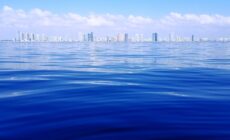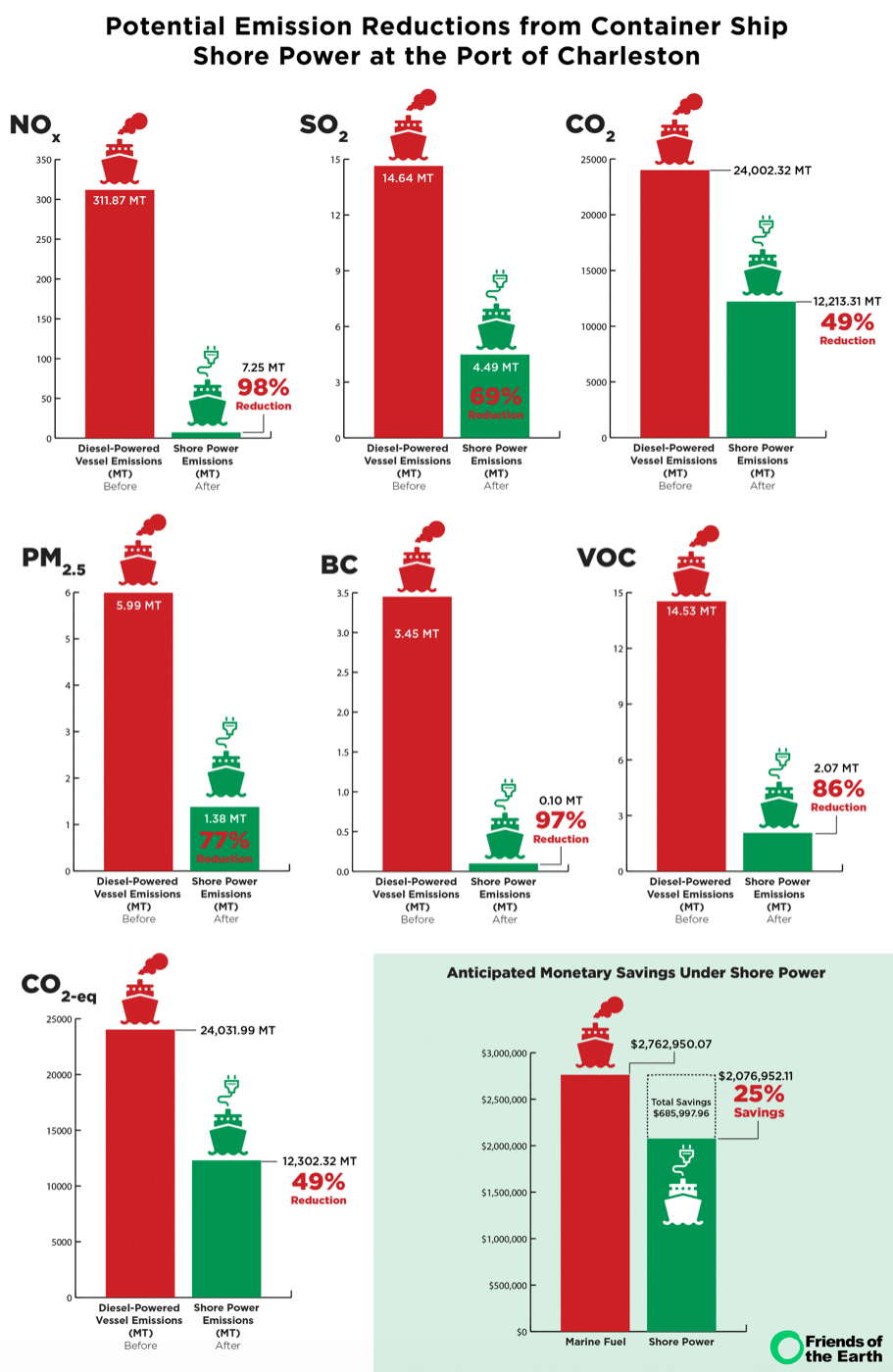Ports and Environmental Justice
U.S. ports today are growing significantly, due to expansion of the Panama Canal and increased trade around the world; however, the high levels of harmful emissions that accompany this growth are not properly accounted for or mitigated. Port growth without an emphasis on substantially reducing overall air pollution emissions is unsustainable and irresponsible.
Communities living near ports bear the brunt of these emissions, breathing in toxic pollutants that can cause asthma, lung cancer, heart disease, and premature death. These neighborhoods are typically communities of color long subjected to environmental injustice.
There are many proven ways to reduce emissions from ports — and Friends of the Earth is working to safeguard public health in and around ports by urging ports to implement alternative power measures. We are also working to organize advocacy efforts in the Mid-Atlantic, Southeast, and Northwest regions to champion Environmental Justice and fight for affected communities.
Electrifying Ports to Reduce Diesel Pollution
Conceptually, a large ship is a small town or municipality that requires energy to continue operating while docked at a port. Often this energy is produced by a ship’s auxiliary engines, which burn dirty oil-based fuel to generate power to maintain onboard operations. However, this particular power supply option is heavily polluting and avoidable. Fortunately ships today are increasingly using electricity from the grid while idling at berth, in a process known as shore power or onshore power supply (OPS). Due to new environmental regulations, federal grant resources, and the Green Ports concept, OPS technology is becoming increasingly popular. OPS allows ships to shut down their engines, reducing noise levels and polluting emissions that affect port workers and Environmental Justice communities. Reports suggest that the OPS system can also become more cost-effective.
A coalition of national and community-based organizations launched the Clean Ports Report Card Project — a first-of-its-kind accountability tool, grading major U.S. ports on their progress to cut emissions, increase transparency, and collaborate with communities.
NEW YORK — The Port of New York and New Jersey was recognized as a “Healthier Harbor” in a new national Clean Ports Report Card released today. earning a high score for its efforts to modernize and clean up its operations through emissions…
Advocates call for more community collaboration; fragmented efforts and a lack of an emissions inventory leave communities at risk

This victory in New Jersey is a reminder of what’s possible when grassroots leadership is valued and supported.

Friends of the Earth’s oceans team is focused on safeguarding public health and our oceans by calling for shore power — a technology that connects docked ocean vessels to the electric grid, allowing ships to turn off their diesel engines when not at sea.
Friends of the Earth’s analysis shows how South Carolina’s Port of Charleston could massively reduce its air pollution and greenhouse gas emissions by using shore power technology

